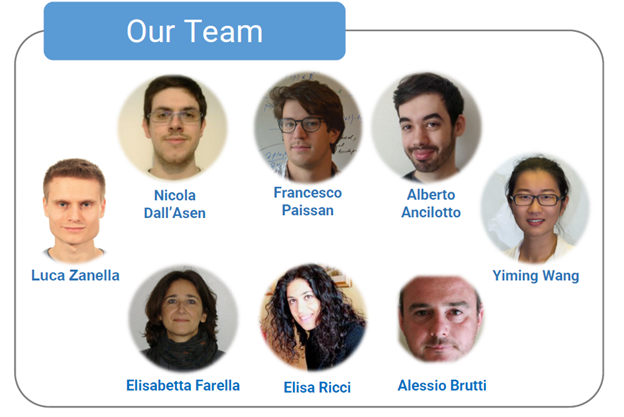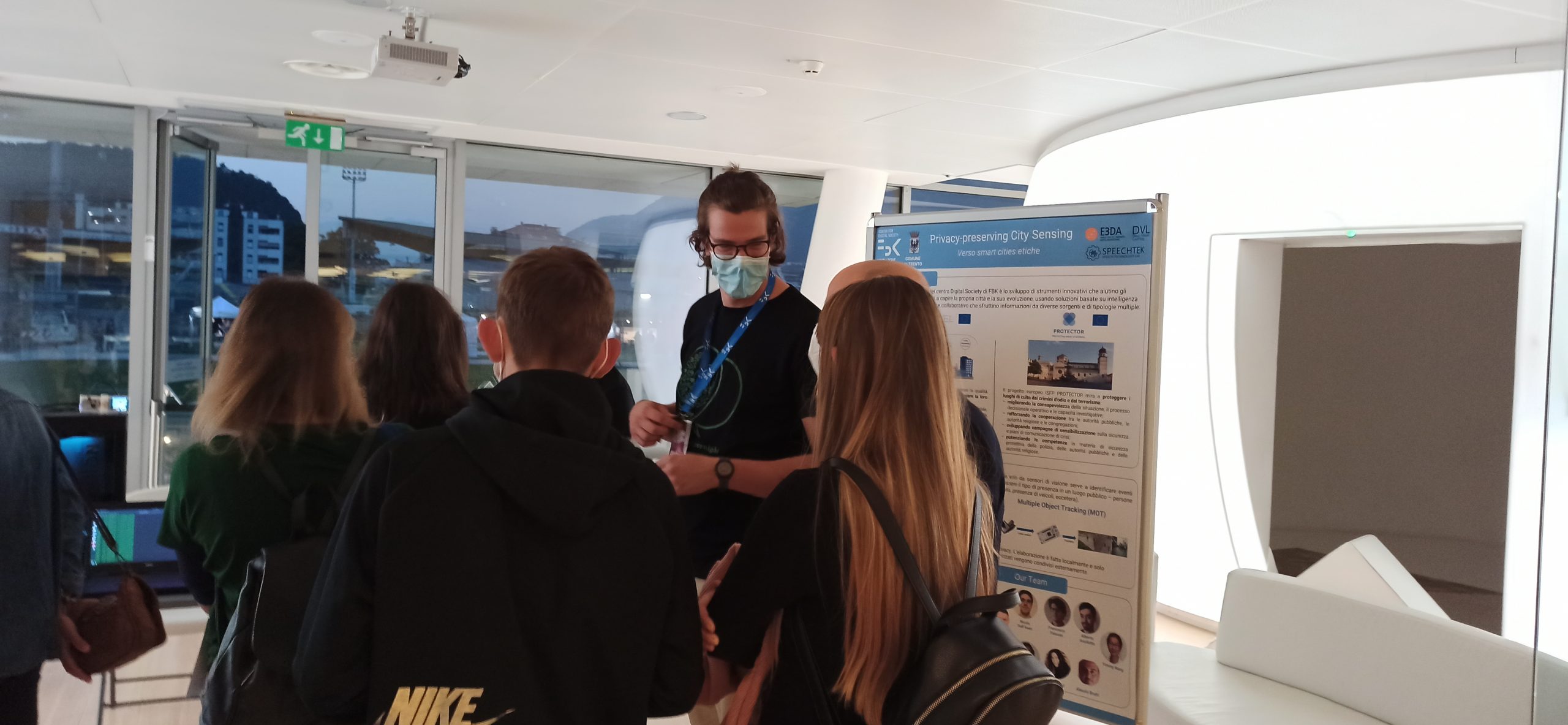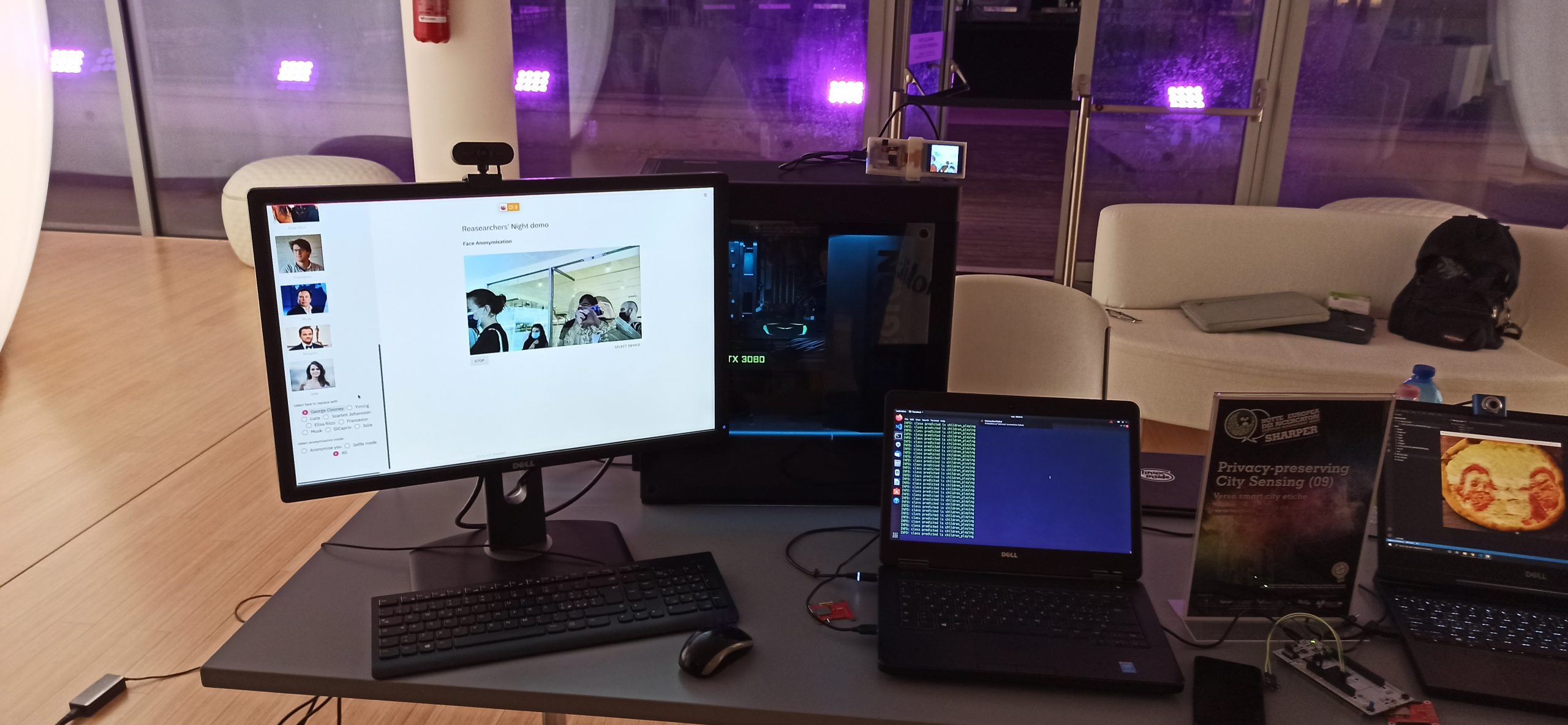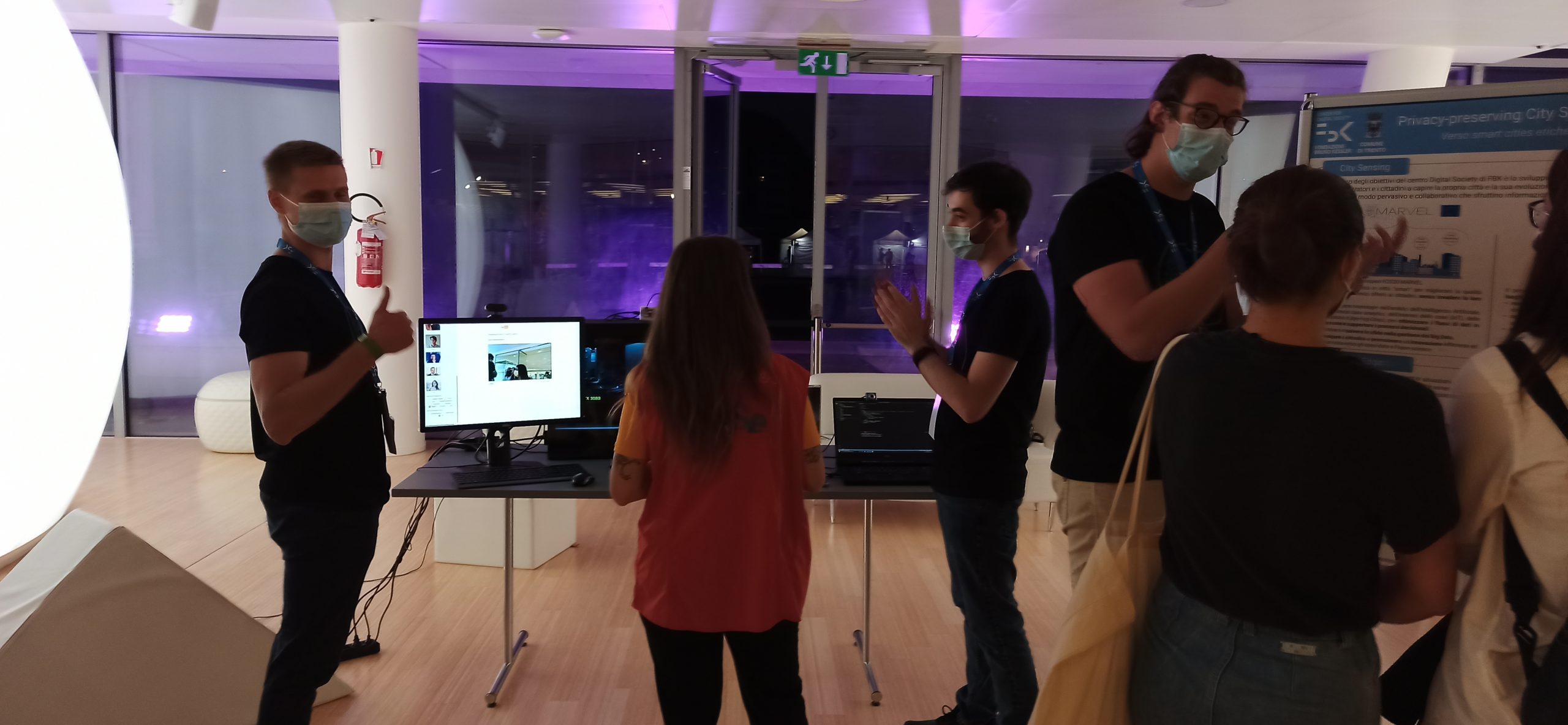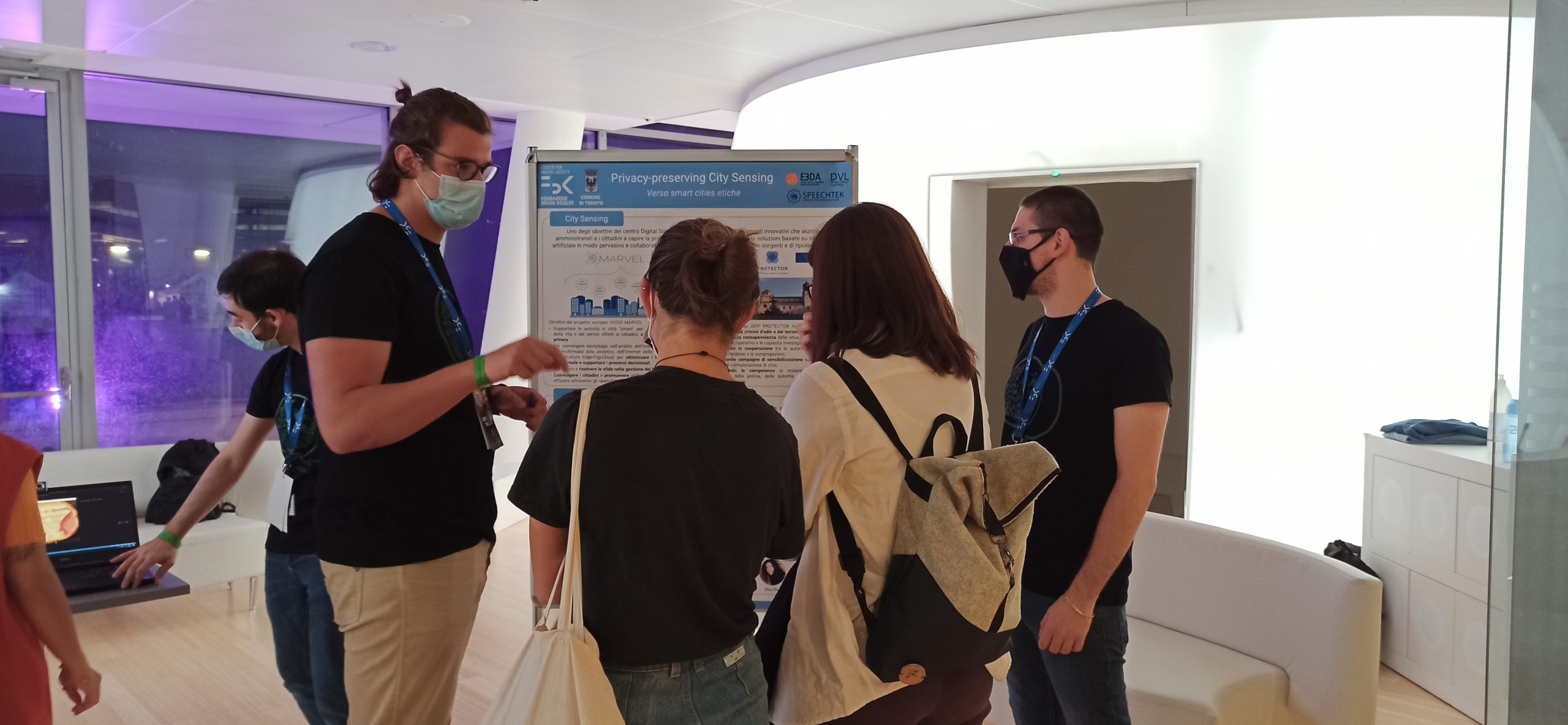The European Researchers’ Night is an Europe-wide public event, which displays the diversity of science and its impact on citizens’ daily lives in fun and inspiring ways. After a year of stop due to the COVID-19 pandemic, the European Researchers’ Night in Trento was back this year!
In Trento, as in 29 other countries, the event took place this year on Friday, 24 September 2021. It was an open event, attended by approximately 2500 people, the majority of which attended face2face and consisted of people from all kinds of backgrounds (students, professors, business and curious citizens).
At the Researcher’s night, FBK team represented by Nicola Dall’Asen, Luca Zanella (both from the DVL research unit) and Francesco Paissan, and Alberto Ancilotto (both from the E3DA research unit) presented four demos to show the impact that the technologies involved in MARVEL have on the community. This was only one out of the 28 initiatives led by FBK and a variety of their departments. The team showcasing the MARVEL related technologies interacted with approximately 400 people and got the chance to perform demos with approximately 150 of them. The rapid growth of Deep Learning and its usage has fostered growing concerns regarding privacy issues, especially in public spaces.
DVL therefore showed a demo about the anonymisation pipeline adopted in MARVEL, which uses generative adversarial networks to transform the participants’ faces into any celebrity of their choice. Traditionally, visual privacy preservation is achieved via video redaction methods, e.g., blurring or pixelation. Such methods can effectively remove Personal Identifiable Information, but come at a high cost of degrading other vision-related tasks, particularly for the action/emotion recognition where the poses play an essential role, e.g., in CCTV footages. Compared to these methods, our pipeline preserves the ability to analyse the images, i.e., preserves pose and expression, while substituting the personal information with those of any other given identity. We used celebrities’ identities to swap the faces, so that the effects of anonymisation could be easily recognised by the people involved in the demo. Although people found it funny, seeing themselves with different faces, makeup, and facial hair, made them aware that a privacy-preserving application of AI systems is possible.
Edge processing is yet another way to preserve data privacy by constraining raw data within the edge devices. The E3DA team presented a demo about Sound Event Detection trained on the UrbanSound8K dataset, thus detecting urban events like, for example, a dog barking or an engine idling. With a smartphone, they generated events and showed how our algorithms can classify relevant events on very tiny devices (that can also be held in one hand). People who tried out the demos were mostly surprised by how such a small device can manage such classification task!
